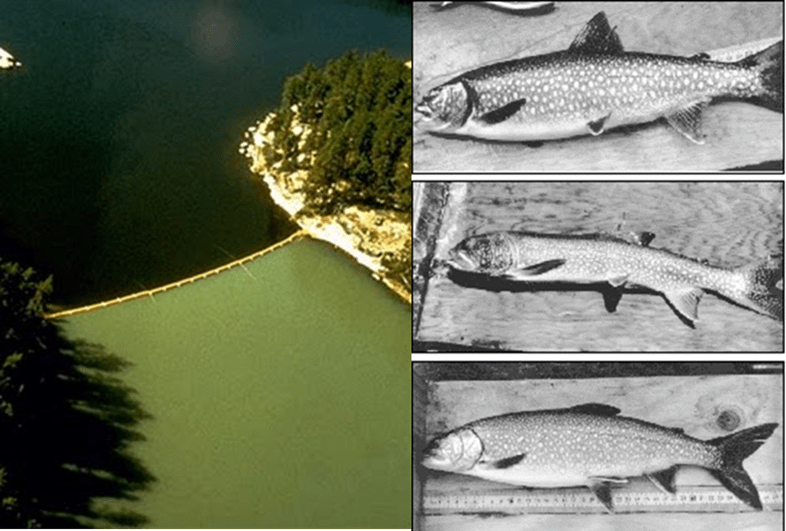Our Changing Watershed: Let’s Stop Pretending Our Environment is Worthless
Part one of a two-part series.
By Geoff Ross.
This week’s title will be shocking to those who understand that the environment is clearly worth a great deal. I agree. But my point is that humans have in the past, and are continuing now, to treat it as though it were worthless. And the costs of this are extremely high.
During my early work with Environment Canada in the 1970’s and 1980’s, no program or regulation was allowed to proceed unless the cost to government, industry and taxpayers was insignificant. This unwritten policy that environmental protection was “desirable” but would not proceed unless it was nearly free, effectively treated the environment as worthless. The environmental and health benefits of measures were poorly understood and difficult to quantify. In contrast, calculating the costs of implementing environmental protection measures was relatively simple, particularly for the industry impacted, and industry routinely estimated such costs to be very high. As a result, it was commonly assumed that costs greatly outweighed the uncertain benefits. In practical terms, the environment itself was assigned little or no value in decisions on protection.
Exceptions to this unwritten policy required graphic evidence of serious damage. In such cases, the response was part of a pattern common in environmental management:
- Observation of an environmental problem raised public concern.
- Scientists investigated and determined the cause of the problem.
- The polluting parties raised the specter of “economic mayhem” should society act to solve the problem.
- Scientific persistence then informed public pressure.
- Political will implemented the necessary solutions.
- The projected economic mayhem did not materialize.
We observed this with phosphorus pollution in the Great Lakes in the 1970s and acid rain in the 1980s. Both problems were initially met with denial, obfuscation and predictions of dire economic consequences should we move to solve them. The consequences of inaction, however, were superbly illustrated in landmark experiments by Dr. David Schindler in Ontario’s Experimental Lakes Area. These provided strong scientific proof and, as importantly, compelling photographic illustration, of the problem which neither industry, the public nor politicians could deny. Clean-up action followed… and the economy still thrived and grew.

By the 1990’s and early 2000’s, the quantification of environmental benefits was showing great progress. In 2007 it was reported that 16 years of experience with the U.S. acid rain “cap and trade” program indicated annual ecological and health benefits of $142 billion by 2010, compared to annual compliance costs of $3.5 billion (Napolitano et al., EPA, 2007). Many had tried to prevent the program from being implemented, largely on the assertion that the costs could not be justified by the expected benefits. They were wrong. In 1997 the global value of ecosystem services was estimated at US$33 trillion per year at a time when global GNP was US$18 trillion per year (Costanza et al., Global Environmental Change, 1997). In 2014 this value of global ecosystem services was revised to US$145 trillion per year. The benefits have grown.
From an inability to recognize and quantify the value of healthy ecosystems, we have progressed to the point where we understand approximately what these values are, and that they are likely higher than the cost of actions to protect the ecosystems themselves. Yet our leaders ignore this lesson – in 2018, the Doug Ford government cancelled Ontario’s planned cap and trade program for carbon emissions, a program which would have reduced emissions with a projected annual economic benefit of $1.9 billion.
So what can we do?
Firstly, do not fall into the trap of thinking and behaving as though the environment is worth little and the economy is the greater concern. Far from being a threat to the economy, healthy ecosystems are an essential and relatively low cost route to a healthy economy.
Secondly, make sure that your elected representatives at all levels know that you expect them to protect the environment as the key step in their work towards a healthy economy.

This article is one of Muskoka Watershed Council’s summer 2023 series on “Our Changing Watershed” in The Muskokan newspaper. This week’s article was contributed by Geoff Ross, a retired professional engineer and past chair of the Muskoka Watershed Council. He holds a Master’s degree in human physiology and endocrinology. Series editor is Dr. Neil Hutchinson, a retired aquatic scientist, Bracebridge resident and Director, Muskoka Watershed Council.
